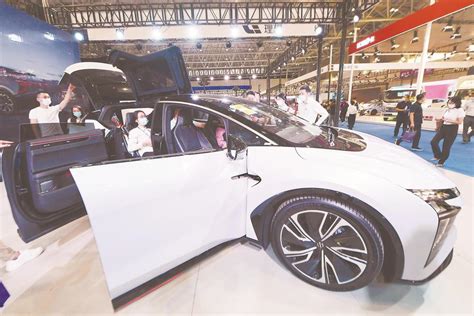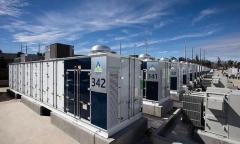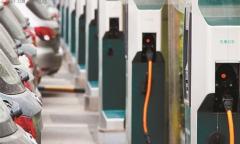新能源汽车英文缩写
Title: Exploring the Future of SUVs: The Rise of New Energy Vehicles
Exploring the Future of SUVs: The Rise of New Energy Vehicles
In recent years, the automotive industry has witnessed a significant shift towards sustainability and environmental consciousness. One of the key manifestations of this transition is the emergence of New Energy Vehicles (NEVs), including electric SUVs (Sport Utility Vehicles). This article delves into the trend of NEV SUVs and their implications for the automotive landscape.
New Energy Vehicles (NEVs) encompass a variety of vehicle types powered by alternative energy sources, primarily focusing on reducing or eliminating reliance on traditional fossil fuels. This includes electric vehicles (EVs), plugin hybrid vehicles (PHEVs), and fuel cell vehicles (FCVs). NEVs are hailed as a vital component in combating climate change and reducing air pollution.

SUVs have gained immense popularity globally due to their versatility, spaciousness, and perceived safety benefits. Traditionally, SUVs were associated with larger internal combustion engines, leading to concerns regarding fuel efficiency and environmental impact. However, the demand for ecofriendly alternatives has prompted automakers to explore sustainable options within the SUV segment.
Electric SUVs represent a fusion of practicality and sustainability, catering to the preferences of environmentally conscious consumers without compromising on performance or utility. These vehicles leverage electric powertrains, comprising battery packs and electric motors, to deliver zeroemission driving experiences.
Electric SUVs offer numerous advantages over their traditional counterparts:
- Environmental Sustainability: By eliminating tailpipe emissions, electric SUVs contribute to reducing greenhouse gas emissions and mitigating air pollution.
- Lower Operating Costs: Electric vehicles generally have lower operating costs compared to internal combustion engine vehicles, owing to the lower cost of electricity and reduced maintenance requirements.
- Enhanced Performance: Electric powertrains deliver instant torque, resulting in swift acceleration and smooth driving experiences.
- Technological Innovation: Electric SUVs often feature advanced technology, including regenerative braking systems, adaptive cruise control, and sophisticated infotainment systems.
- Government Incentives: Many governments offer incentives and subsidies to promote the adoption of electric vehicles, making them more financially attractive to consumers.
Despite their promise, electric SUVs face several challenges and considerations:
- Infrastructure: The availability of charging infrastructure remains a significant barrier to widespread adoption. Efforts are underway to expand charging networks, but challenges persist, particularly in rural areas.
- Range Anxiety: Concerns about limited driving range and the availability of charging stations may deter some consumers from embracing electric SUVs.
- Cost: While the longterm operational savings are notable, the upfront cost of electric SUVs can be higher than traditional vehicles. However, declining battery prices and government incentives are gradually narrowing this gap.
- Technology Advancements: Continuous advancements in battery technology and charging infrastructure are essential to address range limitations and enhance the overall appeal of electric SUVs.
Despite the challenges, the future outlook for electric SUVs is promising. As technology advances and economies of scale drive down costs, electric SUVs are expected to become increasingly accessible and mainstream. Moreover, regulatory pressures and consumer preferences for sustainable mobility solutions are likely to further accelerate their adoption.
The rise of New Energy Vehicles (NEVs), particularly electric SUVs, heralds a new era in automotive innovation and sustainability. By combining the practicality of SUVs with ecofriendly electric powertrains, these vehicles offer a compelling solution to address the environmental challenges posed by traditional combustion engine vehicles. As the automotive industry continues to evolve, electric SUVs are poised to play a central role in shaping the future of mobility.











